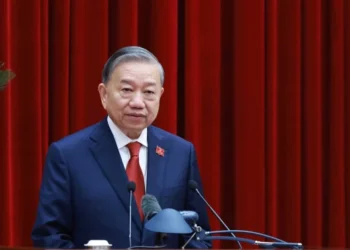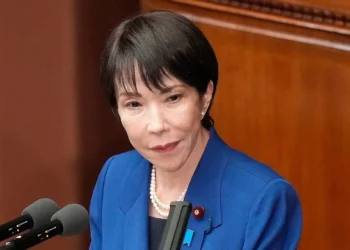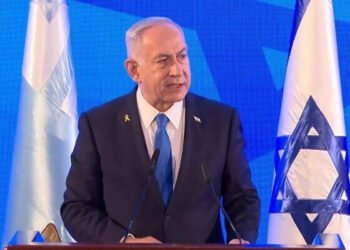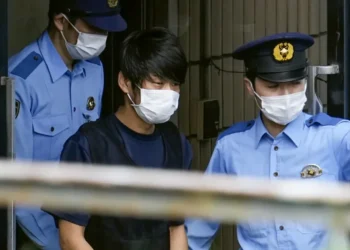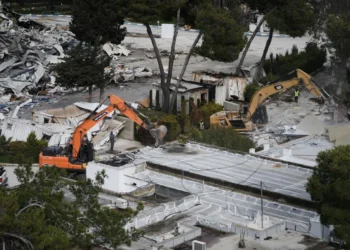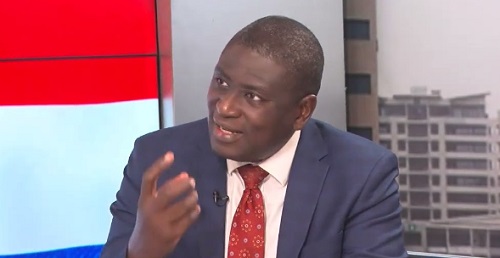According to the Japanese Defence Ministry’s annual defense white paper, China’s military activities present “an unprecedented and the greatest strategic challenge” to Japan.
Defence Minister, Gen Nakatani said in an introduction to the ministry’s annual defense white paper that Japan is facing its most severe and complex security environment since World War II as three potential adversaries in East Asia – China, Russia and North Korea – ramp up military activities in the region. He asserted that the existing order of world peace “is being seriously challenged.”
Nakatani stated that China is “rapidly enhancing its military capability in a qualitative and quantitative manner” while “intensifying” activities around the region.
Nakatani specifically mentioned the Senkaku Islands, a chain in the East China Sea that Tokyo controls but which is also claimed by Beijing, which calls them the Diaoyus.
The 34-page document gives a dire outlook on the future of the region, especially on the rivalry between China and the United States, Tokyo’s most important ally.
The white paper claimed that the global balance of power is shifting dramatically and competition among states continues. “In particular, the inter-state competition between the United States and China is likely to intensify even further in future,” the white paper said.
The paper stated that escalating Chinese military activity around the democratically controlled island of Taiwan poses a threat, adding that China seeks to create a fait accompli where the People’s Liberation Army (PLA) is operating, and improve its actual combat capabilities.
It cited a similar situation in the South China Sea and said that PLA actions there are a legitimate Japanese concern because Tokyo has major sea lanes running through the waterway.
The Japanese paper didn’t only focus on Beijing’s unilateral actions. It mentioned Russia and North Korea too.
It stressed that as part of its expanded activities, the PLA is increasing cooperation with Russian armed forces, including joint bomber flights and naval patrols near Japan. “These repeated joint activities are clearly intended for demonstration of force against Japan,” it noted.
The report stated that in the past fiscal year Japanese fighter jets scrambled 704 times, including 464 times in response to approaching Chinese aircraft and 237 times for Russian aircraft, a rate of almost two scrambles a day.
Also, the report noted that Russia’s three-and-a-half-year-old invasion of Ukraine, along with the buildup in the Russian military that has come with it, is a worry for Japan, especially because of its status as a key US ally.
It emphasized that the security of Europe and the Indo-Pacific is inseparable and warnef that a Ukraine-like war is possible in the region – without specifically mentioning where that might occur.
The report said that some of Russia’s newest military hardware has been deployed to the Pacific.
Moscow has added troops, missiles and warplanes to islands north of Japan, which the Soviet Union took toward the end of World War II, but which Japan says are sovereign Japanese territory illegally occupied now by Russia.
North Korea, meanwhile, is further developing nuclear weapons and the ballistic missiles to deliver them, the report said.
It revealed that Pyongyang’s ballistic missiles, believed to be capable of carrying nuclear warheads, can cover the entirety of the Japanese archipelago.
The report added that North Korea’s military activities are posing an “even more grave and imminent threat to Japan’s security than ever before.”
China Slams Japan’s Statement
China criticised Japan’s stance, with Jiang Bin, a Spokesperson for China’s Defense Ministry, saying that Japan was “hyping up the ‘China threat,’ and grossly interfering in China’s internal affairs.”
Referring to Japan’s strict post-war constitution, which limits its military forces to self-defense only, Jiang asserted that the Japanese side is fabricating “false narratives to find excuses for loosening its military constraints.”
Japan’s invocation of World War II is controversial in a region where fissures over Tokyo’s devastating militarism during the period sour relations with many of its neighbors to this day. “We urge the Japanese side to deeply learn from history, cease slandering and accusing China,” Jiang said.
READ ALSO: Ghana to Gain Big from Government Appointees’ Fuel Cut




